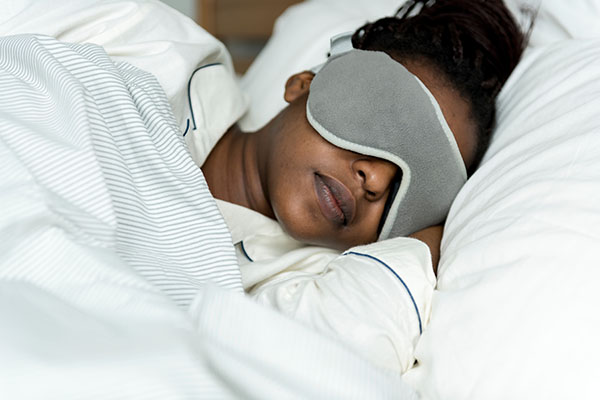Get Some Sleep
ARE YOU HAVING TROUBLE SLEEPING?
If you are having trouble sleeping, you are not alone. One out of three Americans report some trouble sleeping, with over 20 million Americans suffering from insomnia chronically. Lack of sleep can increase the risk of accidents, high blood pressure, stroke, heart disease, depression, and obesity, leading to decreased life expectancy and quality of life. There are numerous causes of sleep disturbances which can include daily stressors (work, financial, or family issues), obesity, depression/anxiety, sleep apnea, thyroid disorders, medications, caffeine/stimulants, restless leg syndrome, pain, poor sleep habits, and chronic medical conditions. Therefore, if you are having trouble sleeping, it is important to meet with your doctor to determine the true underlying cause and to engage in appropriate treatment.
Sleep hygiene
If you have trouble sleeping, start by practicing the following:
-
-
- Establish a regular bedtime and wake time and stick to them – even on weekends.
- Attempt sleep only when you are drowsy.
- Keep bedroom lights dimmed – bright light activates sensors in your brain that tell your body it’s daytime.
- Use the bed only for sleep and sexual activity. Reading, eating, or watching TV in bed conditions your brain to be awake in bed.
- Try not to focus on falling asleep. If you are not asleep after 15 minutes, get out of bed. The bed acts as a trigger for the brain to begin its sleep cycle, and staying awake in bed disrupts this mechanism. After getting up, wait 15 minutes and try again, but only if you feel drowsy.
- If you are constantly looking at the clock, set the alarm and hide the clock. Counting lost minutes of sleep adds anxiety, making sleep even more difficult.
- Exercise regularly during the daytime and avoid exercising at night.
- Read something light or entertaining prior to going to bed to avoid thinking about your daytime stresses.
- Write tasks in a “to do” journal before going to bed. For problems, write down simple solutions or steps toward solutions that you pledge to address at a later time. This technique will help clear your mind before bed.
- Meditate or use relaxation exercises.
- Use white noise background, like a blowing fan.
- Avoid taking naps. If napping is unavoidable, limit naps to less than 1 hour and no later than 3 pm.
- Avoid caffeine 6 hours before bedtime.
- Avoid alcohol 4-6 hours before bedtime. Alcohol may help induce sleep but disrupts the sleep cycle later on.
- Avoid smoking prior to bedtime. If you plan to quit, quit entirely. Reducing tobacco use, rather than fully quitting, may lead to nicotine withdrawal, which may keep you awake.
- Do not go to bed hungry, but avoid a big meal prior to bedtime. Large meals can induce gastro-esophageal reflux, which can interfere with sleep. A light snack is preferable. Foods that contain tryptophan may aid in sleep. The brain converts tryptophan into serotonin, a sleep-inducing chemical. Foods containing tryptophan include dairy products, bananas, turkey, yogurt, whole grain crackers, and peanut butter.
- Avoid over-the-counter medications that contain stimulants, such as nasal decongestants.
-
When should I seek help?
If you have tried sleep hygiene for a month and the lack of sleep interferes with how you feel or function during the daytime, it may be time to see your doctor. The following information will be helpful for your physician and should be recorded in a journal each night:
- How long were you in bed?
- How much time do you think you actually slept?
- How many times and at what time(s) did you wake up?
- What time did you get up in the morning?
- What was the quality of your sleep?
In addition, your bed partner or household members may provide valuable information. Ask if you snore or are restless when asleep. Ask if you ever have short periods of time where you stop breathing during sleep.
What about sleeping pills?
While sleeping pills can help someone fall asleep and feel more alert the next day, they are not a cure for insomnia. Sleeping pills may mask underlying disorders that cause insomnia. Sleep disturbances should be properly diagnosed, and treatment options should be discussed with a healthcare professional prior to initiating the use of sleep aids.
For more information about sleep disturbances, visit your healthcare professional.


